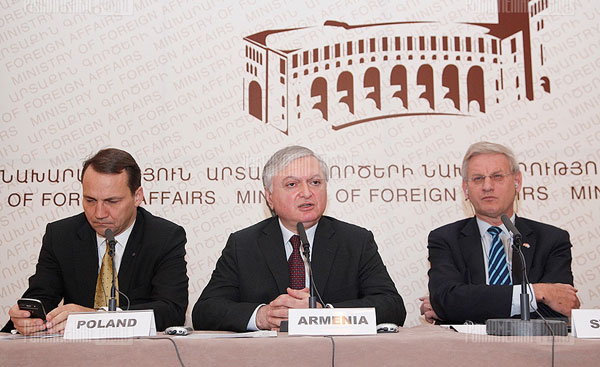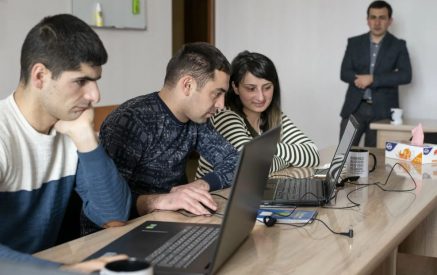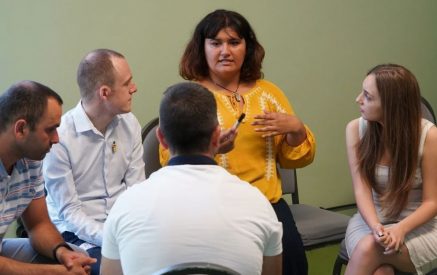In spring 2008, Sweden and Poland initiated work on the Eastern Partnership – a more ambitious policy for the European Union vis-à-vis six Eastern European neighbors seeking closer relations with the Union.
Now – five years later and in the run-up to the third Eastern Partnership Summit in Vilnius – we will embark on a joint trip that will take us and other high-level Swedish and Polish representatives to all the Eastern Partnership capitals: to Chisinau, Kyiv, Tbilisi, Baku, Yerevan and Minsk.
The first message that we will bring is about all that has already been achieved: we have finalized work on Association Agreements and Deep and Comprehensive Free Trade Areas with Georgia, Moldova and Ukraine that, once signed, will lead to broader and more profound co-operation with the EU. We have signed a host of Visa Facilitation Agreements, most recently with Armenia. And here and there we have seen some significant progress on the European reform agenda. While much of the work has been about negotiating dry texts and adjusting bureaucratic standards, we have step by step opened very real doors for trade and travel.
Our second message will be about what needs to be done for the Eastern Partnership to deliver in full. For this to happen, we need a stronger commitment from our partner countries to common values. We also need a concerted effort from all parts of society to make the most out of the new opportunities. Real transformation will only happen in countries that decide in favor of change.
Read also
We stand firm in our demand that Belarus must release its political prisoners and we call upon partners to stay clear of practices of selective justice. We are concerned about democratic backsliding. And we still wait for Ukraine – the original front runner of this partnership – to take the final step that will allow the EU to sign the Association Agreement in Vilnius.
As frequent visitors to Eastern Europe, we know that some of these things are not easy. What the European Union is asking may include sacrifices, and for some – even losses. But at the same time, we are deeply convinced that the gains are bigger and the effort is worth making.
All studies – and all experience – show that closer relations with the European Union bring considerable economic benefits over time. We have seen this in the countries that joined the EU in 2004, when for example Poland’s trade with Sweden almost doubled during the years immediately following accession. We have seen it in Turkey, which has had its economic miracle underpinned by closer economic ties with the EU. And we are convinced that we will see it again in those Eastern European partner countries that sign and make full use of the new agreements on offer with the EU.
Closer integration with the Union will provide an anchor for reforms. Adjusting legislation to the EU acquis may be frustrating, but in country after country we have seen how this has helped increase prosperity, raise income levels and improve the lives of ordinary citizens. The EU will, of course, be ready to assist. In 2013 alone, over 600 million euros are available for our partner countries, and the more they reform the greater the support will become.
None of this is pure altruism, or part of a zero-sum game. Countries that are stable, prosperous and secure make better neighbors for us, just like they do for countries such as Russia. During our trip, we will therefore reiterate our strong solidarity with those partners that are subject to short-sighted external pressure to abandon further EU integration.
The Vilnius Summit will hopefully be a summit of achievement. At the same time, it will mark the beginning of deeper integration between the EU and the countries of Eastern Europe. This is a good thing for all of us. And while we believe that the door to the EU must remain open for any European country that wishes to join and fulfills all the criteria, our final message during this round trip will not be an abstract promise, but a practical encouragement to take action.
From Minsk in north-west to Baku in south-east, everyone must understand that the future will be decided there – not in Warsaw, Stockholm or Brussels. For Eastern Partnership countries the logic is simple: the depth of their relationship with the EU will ultimately be determined by nothing else but the depth of their commitment. The more convincing the agenda of European reforms, the more ambitious the path of European integration – and the more realistic our vision of a Europe that is truly whole and free.
Radosław Sikorski
Foreign Minister of Poland
Carl Bildt
Foreign Minister of Sweden


























































